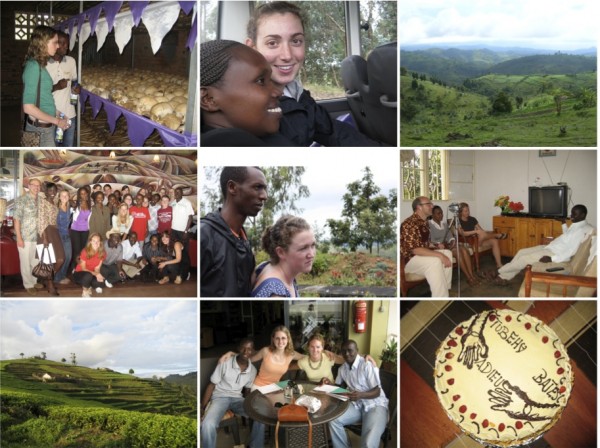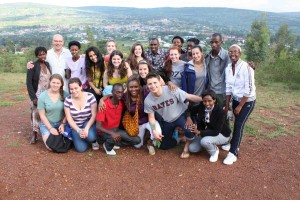Off campus Short term : Rwanda
This civically engaged course is designed as an oral history project allowing students to work in collaboration with orphans of the “Association Tubeho” (“Let’s live” in Kinyarwanda). The 350 members of this Association live in Kimironko, a neighborhood of Kigali and are between 15 to 30 years old. The goal for students is to open spaces to share stories and reflect on their possible role when listening to the life, needs, challenges, sufferings, and hopes of survivors. As interlocutors, what role are we willing to embrace as we discover survivors’ strategies of survival, resilience, and long term negotiation of trauma. The first week of the course at Bates is devoted to the study of Rwanda’s history, the factors that lead to the genocide against the Tutsis of 1994, and the politics of national unity that defines its aftermath. In Kigali, we will meet numerous important social actors and government officials who play a crucial role in alleviating survivors’ pain and helping them to redefine their place and voice in today’s Rwanda. During our stay, we will visit with our Rwandan partners numerous regions of the country and several memorials in order to gain a better understanding of the relationship between memorialization, personal mourning and trauma, national reconciliation, and the implementation of transitional justice. Berthe Kayitesi, a member of Tubeho who is doing a Ph.D. in Education and Social Sciences will assist us in our discussions, analysis, interviews and operate as linguistic translator and cultural mediator. The final outcome of the course is both personal and collective. Each student writes a field and travel log during the whole course, and upon our return writes a self-evaluation focusing on the value, lessons, and demands of community partnership. All the material collected during our stay (transcripts of interviews, filmed interviews, audio archives, and pictures) will be put together and edited so that they can benefit the “Association Tubeho” to promote its cause and generate more awareness for the specific challenges its members face.
Additional information and links:

